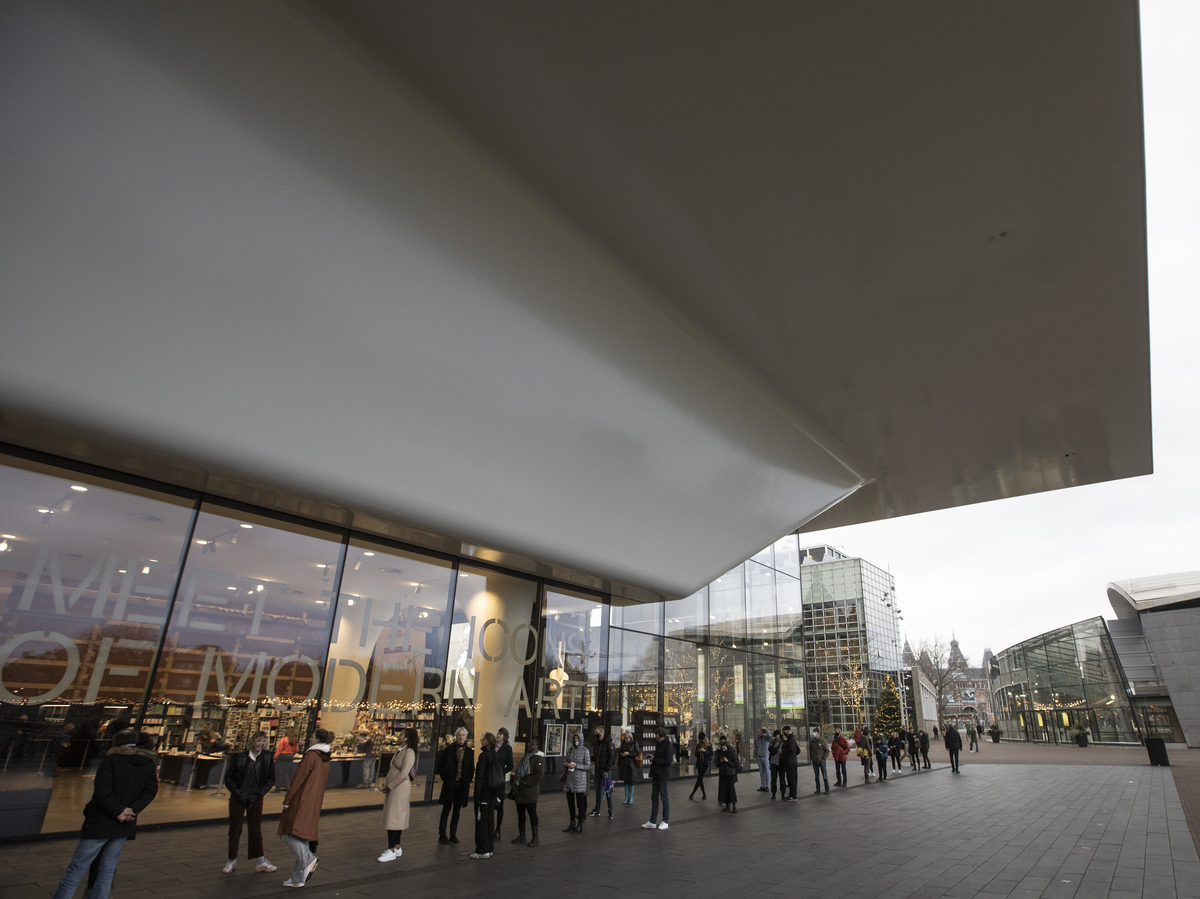Kandinsky painting that was auctioned during WWII is returned to Jewish heirs

Visitors queue up to enter the Stedelijk Museum in Amsterdam. The museum announced in August 2021 it would return the valuable “Painting With Houses” artwork by Wassily Kandinsky to the heirs of a Jewish family that originally owned it, ending years of legal wrangling over the work that was sold at auction in 1940.
Peter Dejong/AP file photo
hide caption
toggle caption
Peter Dejong/AP file photo

Visitors queue up to enter the Stedelijk Museum in Amsterdam. The museum announced in August 2021 it would return the valuable “Painting With Houses” artwork by Wassily Kandinsky to the heirs of a Jewish family that originally owned it, ending years of legal wrangling over the work that was sold at auction in 1940.
Peter Dejong/AP file photo
A prized painting by Russian master Wassily Kandinsky that was sold under duress during World War II has been returned to the descendants of its former Jewish owners.
The oil painting, Bild mit Häusern (Painting with Houses), was just one of a treasured art collection inherited by Robert Lewenstein and his wife Irma Klein, which, at one point, also included works by Van Gogh, Renoir and Rembrandt. But the pair was forced to auction off the Kandinsky painting in October 1940 as they fled the Nazis five months after they invaded the Netherlands.
Records show the director of Amsterdam’s Stedelijk Museum bought the Kandinsky for a fraction of its value at the time. Het Parool reports: “He paid 160 guilders for it – a pittance of the original value at the time, 2000 to 3000 guilders.”
The 1909 painting of a figure in a colorful, abstracted landscape, now has an estimated value of more than $20 million.
Its transfer to Lewenstein’s heirs on Monday puts an end to a nine-year dispute.

“As a city, we bear a great responsibility for dealing with the indescribable suffering and injustice inflicted on the Jewish population in the Second World War,” Amsterdam Deputy Mayor Touria Meliani said in a statement.
“To the extent that anything can be restored, we as a society have a moral duty to act accordingly. This certainly applies to the many works of art that were in the possession of Jewish citizens and were looted by Nazis or were otherwise lost to the owners,” Meliani added.
An initial attempt to regain the multimillion dollar work of art was denied by the Dutch Restitutions Committee in 2018 after a five-year investigation. The committee rules in cases of ownership of artifacts looted during Nazi occupation
An appeal of the decision in 2020 also failed. But a year later, a second committee formed by the Dutch government ruled to reassess the case. That led to renewed talks between the Lewenstein heirs and the municipality.
“The municipality and the heirs agree that the restitution does justice to the principle of returning works of art that were involuntarily removed from possession during the Second World War due to circumstances directly related to the Nazi regime to heirs of the then owners where possible,” the museum said on Monday.
James Palmer of the Mondex Corporation, which helps with restitution negotiations, added, “Today marks the beginning of a new chapter in the journey of the Lewenstein family to achieve the justice, dignity and respect that they have been rightfully seeking for so many years.”
For all the latest Entertainment News Click Here
For the latest news and updates, follow us on Google News.
